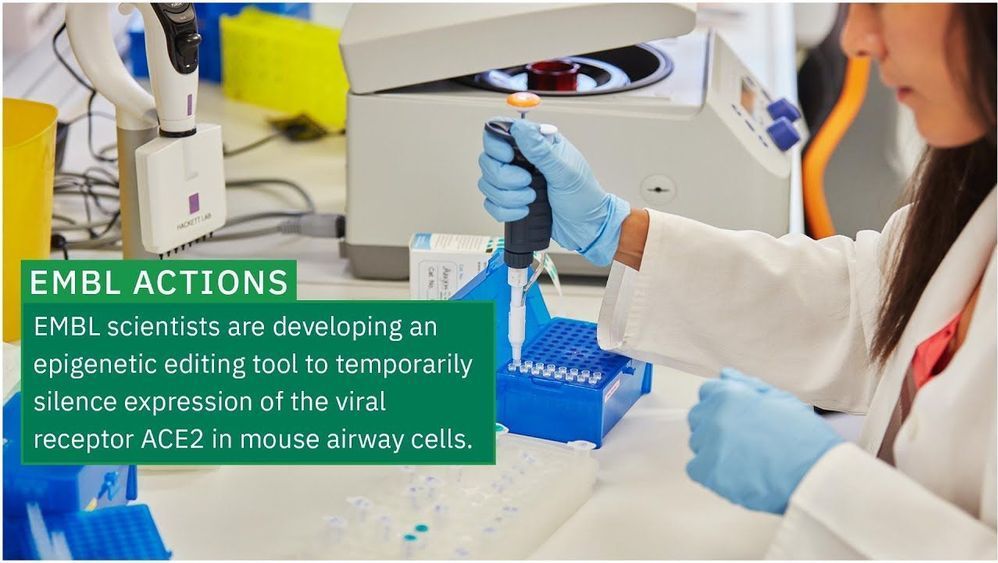The Hackett Group at EMBL Rome explores epigenetics, genome regulation and cell identity. Recently, the scientists developed a novel CRISPR molecular tool for editing the epigenome, enabling transient modifications that can switch certain genes “on” and “off” temporarily.
The SARS-CoV-2 virus that has caused the COVID-19 global pandemic makes its way into a host cell via a protein known as ACE2, which is involved in a range of physiological functions in the body.
What happens when you transiently turn “off” the gene that encodes this protein? Can SARS-CoV-2 still enter the cell and cause infection? This is what Hackett and colleagues are currently exploring in animal models, to determine whether epigenetic silencing could be a treatment approach for COVID-19 in humans.
